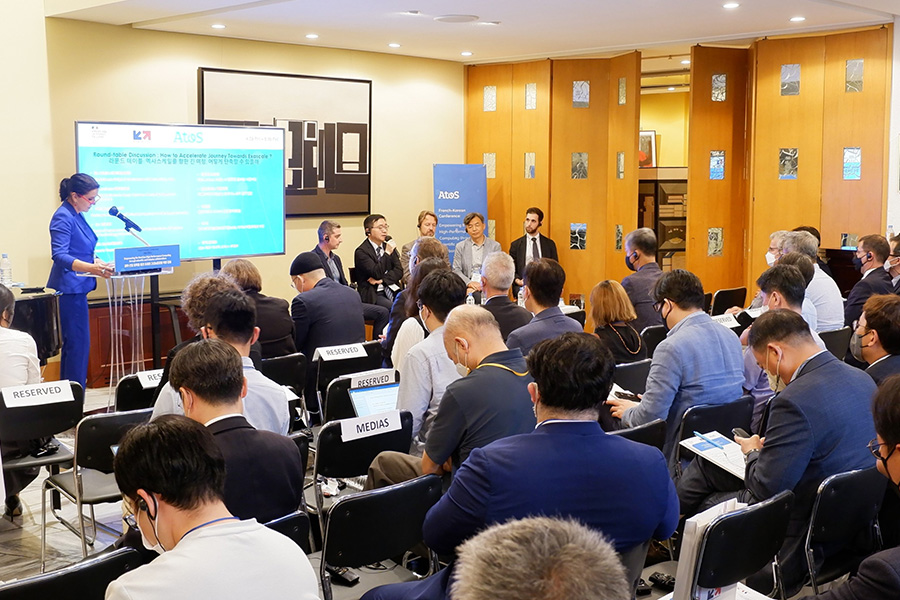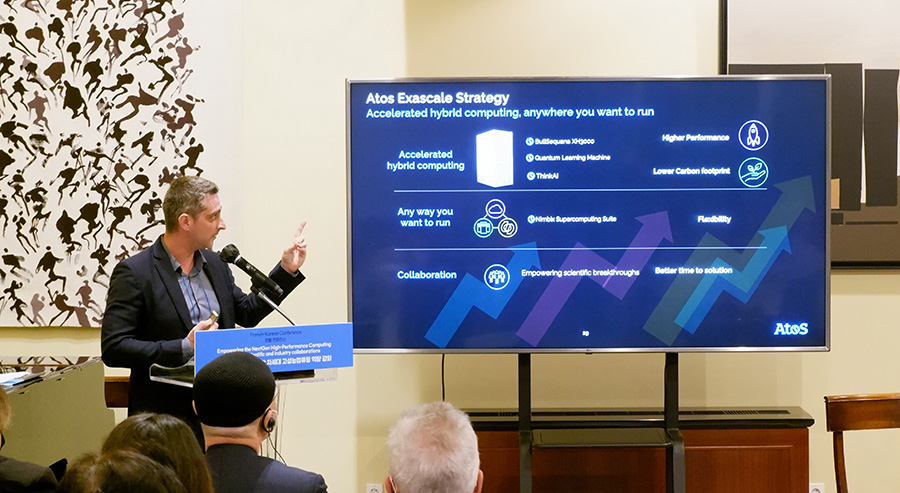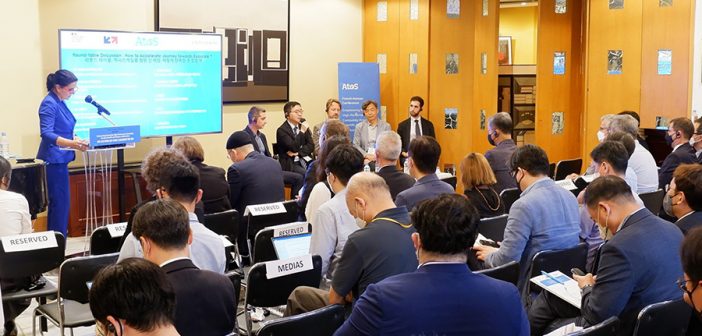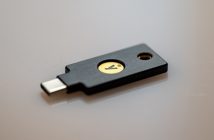
On June 23rd 2022 a high-level event jointly organised by the French Embassy and Atos took place.
Entitled “French-Korean Conference: Empowering the NextGen High-Performance Computing through scientific and industry collaborations”, this event brought together key players and trailblazers from both Korea and France in the field of High-Performance Computing.
They discussed synergies between France and Korea that could be leveraged to accelerate each other’s journey towards the next generation of supercomputers, the Exascale.
They agreed that such initiatives should focus on three main aspects: strengthening scientific cooperation between France and Korea in HPC, AI and Quantum Computing, potentially capitalizing on France’s pivotal role within the EuroHPC Joint undertaking, developing fully hybrid architectures and finally enhancing training & education for users of these very complex systems.
During this event, the First Counsellor of the French Embassy in Korea opened the seminar by highlighting Europe and France’s strategy in the field of High-performance computing and quantum emulator. At least two exascale systems will be set up in Europe in the coming years and France is willing to host one. France has a comprehensive strategy for quantum technologies, that will be fuelled by 1,8 Bn EUR until 2025, in order to ascertain scientific and industrial leadership, support an attractive ecosystem and start-ups, and train talents.
M. Laurent CROUZET, Head of Digital Services and Infrastructures at the French Ministry of Higher Education and Research shared his views on how the European HPC experience and cooperation are paving the way toward larger HPC infrastructures like exascale. Professor LEE Jaejin Vice-Dean of Seoul National University Graduate School of Data Science explained to the audience how hybridisation of HPC with quantum simulation is widely used in Deep Learning.
Mrs Cécile Vigouroux, Head of International Relations at the French National Institute for Research in Digital Science and Technology (INRIA) said “INRIA collaborates internationally with a limited number of strategic partners, including Korea. INRIA has signed framework agreements with KAIST in 2020 to promote joint research projects and exchanges of doctoral students, and with ETRI in 2021, particularly in the areas of AI, IoT and 5G. The institute also wishes to strengthen its existing collaboration with KISTI.”

These keynote speeches were followed by a rich panel discussion involving representatives – Dr Sik Lee of KISTI (Korea Institute of Science and Technology Information), Dr Andreas Heinrich of IBS (Institute for Basic Science), Dr Louis Priaux of CEA Tech (the French Alternative Energies and Atomic Energy Commission’s Technological Research Division) and Dr Lee Sang-san of Handong University.
Korea has been focusing until recently on the optimal utilisation of HPC resources, which has helped its scientific institutes achieve top standing within the worldwide HPC community. Korea is now aiming at developing its very own ecosystem of industrial players in both HPC and Quantum Computing, objectives for which it can certainly leverage its strong expertise and industrial base in both electronics and software development. It also wants to accelerate its journey towards exascale to get into the top 10 HPC installations worldwide.
In a world where data is explosively growing, the European Union through the EuroHPC undertaking is at the forefront of the development of this technology. This is made possible thanks to Research Institutes like INRIA, and also Julich, BSC or the CEA, which use or will soon use Atos’ BullSequana X supercomputer.
Panellists also concurred on the necessity to reduce the carbon footprint of HPC in response to Global Head of High-Performance AI Computing at Atos, Dr Cedric Bourrasset’s closing remarks, “We are supporting our customers to reduce their HPC carbon footprint by optimising applications and time to solution within the same compute power envelope.”





